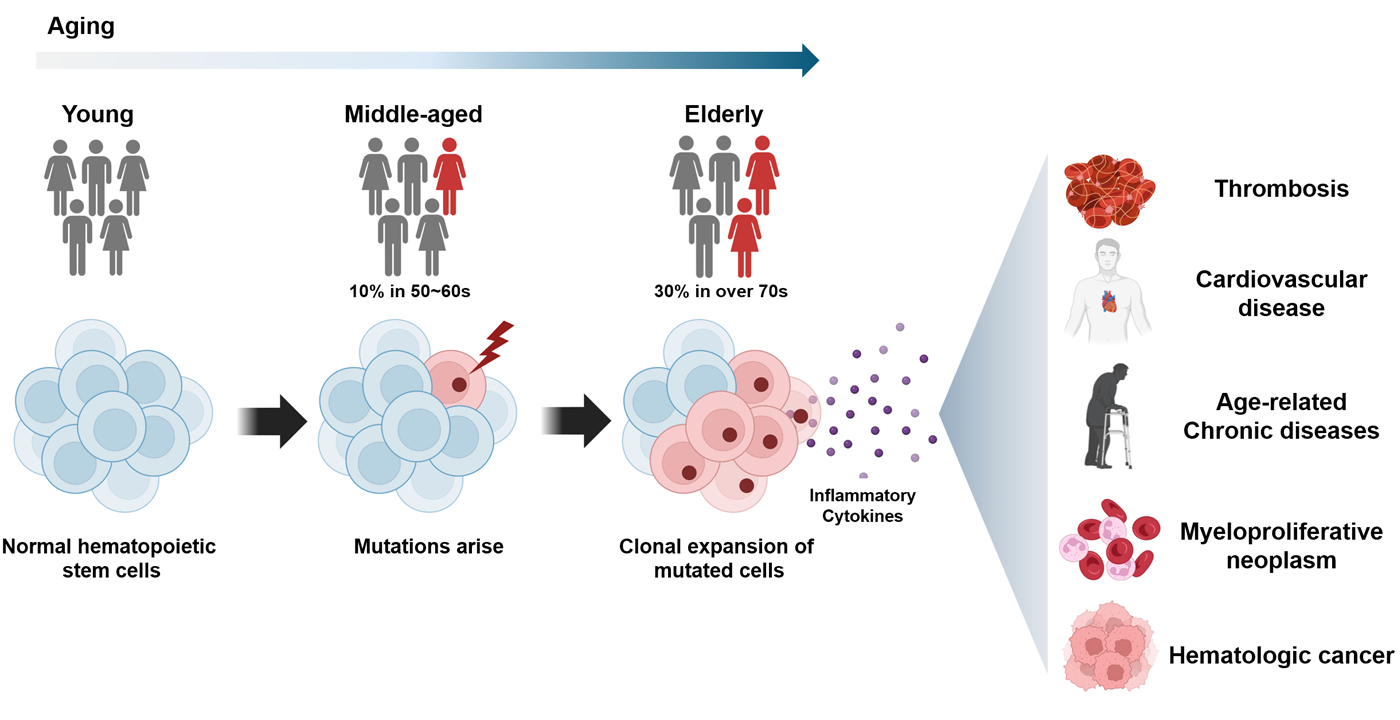What is Clonal Hematopoiesis (CH)?
As the body ages, its immune cells age as well. Clonal hematopoiesis (CH) is a condition that occurs with age where mutations arise in the hematopoietic stem cells—the cells that create blood and immune cells—leading to the expansion of a "clone" of these mutated cells.

- Mutant immune cells derived from these CH clones excessively secrete inflammatory cytokines (like IL-1β and IL-6), creating a microenvironment throughout the body that is prone to inflammation. This chronic inflammation further promotes the expansion of the CH clone, ultimately accelerating what is known as "inflammaging" and "immune-aging."
- Inflammaging : In macrophages that have a CH mutation, the inflammasome (a key part of the inflammatory response) becomes overactivated, causing an excessive release of inflammatory cytokines. Inflammaging is known to significantly increase the risk of cardiovascular disease, pulmonary disease, and neurodegenerative disorders.
- Immune-aging : A CH clone pushes the immune system into a hyper-inflammatory state and skews bone marrow production toward the myeloid lineage. This promotes immune-aging, a gradual decline in the function of the immune system. Specifically, it negatively affects the microenvironment of critical immune cells like T-cells and B-cells. This impairs the anti-tumor immune response, which in turn increases the risk of cancer and reduces the effectiveness of cancer treatments.
- CH clone is considered a pre-malignant reservoir for hematologic cancer (blood cancer). It is known that the presence of a CH clone increases the risk of developing hematologic cancers by more than 10-fold.


